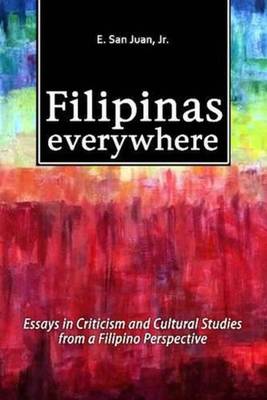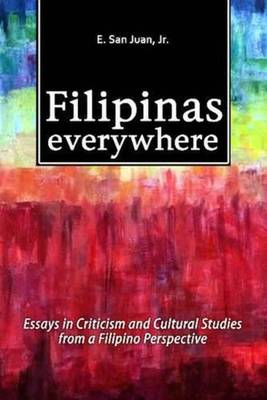
- Retrait gratuit dans votre magasin Club
- 7.000.000 titres dans notre catalogue
- Payer en toute sécurité
- Toujours un magasin près de chez vous
- Retrait gratuit dans votre magasin Club
- 7.000.0000 titres dans notre catalogue
- Payer en toute sécurité
- Toujours un magasin près de chez vous
Filipinas Everywhere
Essays in Criticism and Cultural Studies from a Filipino Perspective
E San Juan
67,95 €
+ 135 points
Description
In this epoch of disastrous neoliberal globalisation, E. San Juan's critique seizes the crisis in neo-colonial Philippines as a point of intervention. As current Philippine President Duterte's timely war on drugs and corruption rages, San Juan foregrounds the facticity that Filipinos are once more confronted with the barbaric legacy of U.S. domination, legitimised today as civilising humanitarianism. This wide-ranging discourse by a Filipino radical scholar interrogates the apologetic use of postcolonial dogmas, Saussurean semiology versus Peircean semiotics, Kafka's allegory on torture, Edward Said's use of Gramsci, and the post-conceptual view of photography. The author also diagnoses the symptoms of nihilistic neoliberal ideology found in media discourses on diaspora, terrorism, and globalisation. His critique of academic postcolonial studies sums up the arguments elaborated in his previous books, Beyond Postcolonial Theory (St Martins Press), After Post-Colonialism (Rowman & Littlefield), and especially US Imperialism and Revolution in the Philippines (Palgrave Macmillan). Overall, San Juan seeks to deploy a historical-materialist perspective in elucidating the dialectical interplay of contradictory forces symbolised in art and diverse cultural texts. In the process, he delineates the contexts of events and encounters generating revolutionary transformations in this transitional Asian-Pacific islands that, with its subjugation in the Filipino-American War of 1899-1913, marked the fateful advent of U.S. imperial hegemony on the planet.
Spécifications
Parties prenantes
- Auteur(s) :
- Editeur:
Contenu
- Nombre de pages :
- 192
- Langue:
- Anglais
- Collection :
Caractéristiques
- EAN:
- 9781845198664
- Date de parution :
- 23-02-17
- Format:
- Livre broché
- Format numérique:
- Trade paperback (VS)
- Dimensions :
- 152 mm x 229 mm
- Poids :
- 299 g

Les avis
Nous publions uniquement les avis qui respectent les conditions requises. Consultez nos conditions pour les avis.






